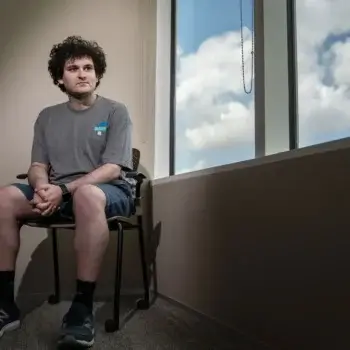John Sharp gets a buzz from bring something new into the world!
What’s your story?
I started my professional career as an orchestral arranger and composer in Adelaide, Australia. Software rendered my chosen profession obsolete within a few years and pushed me down the path of networking and software. I built a Chinese language TV network, ran the Asian market for the world’s biggest ever startup, US-based WorldSpace, (where we raised 1.8 billion in our seed round) and then I built and sold a US-based cybersecurity company, when Google was telling you it’s scanning your email for viruses. We built that! In 2010, I moved back to Singapore from Florida, which is just like Singapore, with less cobras and more alligators!
What is your involvement with Investment?
I co-founded Hatcher along with seven other investors in 2013. Since then me and my fellow investors have made 21 investments in 13 companies – one of which I now work for, Hatcher+. Hatcher+ is a new AI and machine based learning platform for venture investment that has plans to make 2,000 investments over the next 3 years.
How did that come about?
I have been building and selling companies all my life. My first investment was an Asian digital sample library that returned 50 times, and my second investment was a satellite TV channel that returned 5 times. My third investment was a failure. Once you have the startup investment bug, it becomes impossible to get off the train. Nothing else is as exciting or rewarding as bringing something new into the world. It’s addictive!
What are some of the key things you have learnt about Investing?
The most important thing about investing is the valuation you come in at. Our research at Hatcher+ uncovered an interesting fact recently; most angels accept valuations that are far too high. So with this in mind, angel investing is like buying and selling a house, you need to focus on buying at the right price. The second key thing is you need to invest in honest, hardworking, intelligent, positive people. You can always put up more money, but you cannot inject optimism that is not already there.
What mistakes do you see less experienced investors making?
Experienced investors, including myself, all make the same mistake; we invest in one or two companies, or small, non-diversified portfolios, in the belief that we can grow unicorns in hamster cages. However, sometimes this is possible. Our first investment company had a TYPI of 0.40 within 3 years, which currently puts it in the top 10% of funds worldwide. However, this kind of result requires a lot of luck and hard work.
What mistakes do you see Entrepreneurs making?
Entrepreneurs need to share the good and the bad with investors. Investors are great at helping with both. One time, when I was a much younger entrepreneur and CEO of a startup that had just raised $22USD million, I was in a board meeting, waving my arms around, painting a bright picture of the future and one of my new investors put his hand up and said “Stop! You have our money. You can take off the cheerleader skirt now. What problems are you facing with the business?” I’ve never forgotten that moment. You need to be real with your investors, and tell them what is going on. Don’t wait until it’s too late to ask for their help.
What’s the best piece of advice you ever received?
The best piece of advice I ever received was from an investor from Malaysia. At my very first board meeting he asked me if I knew what CEO meant? I said, “of course I do, I’m not that naive. It stands for Chief Executive Officer. He smiled and then shook his head. “You’re wrong,” he said. “CEO stands for Customers, Employees, Owners, in that order of importance.” His point being, if you look after your customers, and treat your employees well, the owners will benefit automatically. Great advice.
What advice would you give to those seeking funding?
When you seek funding, you need to be aware that investors care mostly about three things: How much, how long do you need it for and how much will I get back?
Who inspires you?
My wife inspires me. She is the most balanced, level-headed person I’ve ever met. She’s an amazing mother, a no-bullshit friend, and has a great outlook on life. I wish I could be more like her.
What have you just learnt recently that blew you away?
I recently learnt, first-hand, from my partner at Hatcher+, Dan Hoogterp (possibly the smartest man I’ve ever met), how unbelievably powerful AI can really be. It’s one thing to read about the capabilities, it’s another thing to input data and watch a machine output smart decisions that are hundreds of times more powerful and informed than human-based decisions. What I learnt is that AI is far more powerful than 99% of us know and, it’s growing in power exponentially.
What business book do you recommend the most?
The best business book for entrepreneurs to read is the Innovator’s Dilemma. It explains with great clarity, how to succeed as a small fish in an ocean full of predators. It is one of the very few books that fundamentally changed my outlook on being an entrepreneur and made me believe that a small company is capable of any level of success it aspires to.
Shameless plug for your business/organisation:
Hatcher+ is on a mission to revolutionize venture investing. We believe AI and machine learning, used in partnership with leading accelerators, can revolutionize deal sourcing and selection, and we believe that adopting portfolio theory through the use of massively scalable portfolios is the future. Finally, we think that 15 year venture funds are done. The future will consist of ETF-like venture funds traded on blockchain enabled exchanges. That’s what Hatcher+ is enabling.
How can people connect with you?
People are welcome to connect with me via Hatcher.com or LinkedIn.
Social Media profiles?
Twitter: https://twitter.com/gohatcher
Linkedin: https://linkedin.com/company/hatcher
Blog: https://hq.hatcher.com/blog.php
—
This article is part of the World Business Angel Forum media partnership with AsianEntrepreneur.org
If you would like more information about WBAF, please contact Callum Laing WBAF High Commissioner for Singapore. [email protected]































